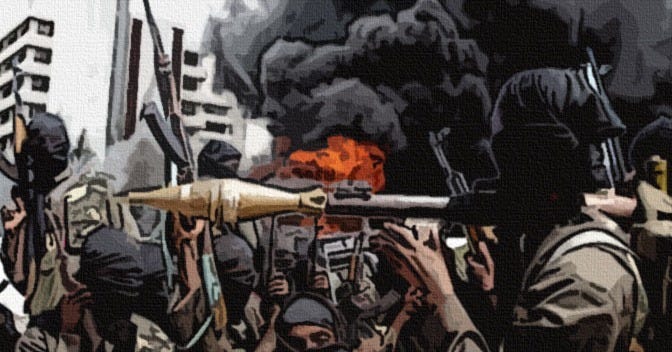Boko Haram Massacre in Nigeria Deepens Sahel Instability
Renewed jihadist violence across Nigeria's northeast exposes persistent state weakness in Africa's most populous nation
Boko Haram militants killed at least 55 people, including six soldiers, in a brutal Friday night assault on Darul Jama village in Borno State. The attackers arrived on motorcycles, shooting indiscriminately and setting homes ablaze in the village near the Cameroon border.
Image: AK Rockefeller / Flickr, “Boko Haram (7219441626).jpg,” licensed under CC BY-SA 2.0
Many victims were families recently relocated from displacement camps under the government's controversial "return to communities" policy, with one survivor lamenting: "The government told us we would be safe here." Residents had warned authorities for three days about suspicious militant activity, but no reinforcements were sent.
According to Good Governance Africa, over 300 attacks occurred in the first half of 2025 alone, killing at least 500 civilians, mostly at the hands of ISWAP—Boko Haram's splinter group. President Bola Tinubu ordered a review of military operations against terrorists following the latest massacre.
The attack underscores Nigeria's layered security crisis: jihadist violence in the northeast, criminal gangs in the north-central regions, and kidnapping threats to foreign investment. Boko Haram has been waging a bloody campaign since 2009, killing about 40,000 people and forcing more than two million to flee their homes.
Nigeria's internal stability remains crucial for regional security architecture, particularly as the Sahel faces expanding jihadist networks. The government's struggle to protect resettled populations highlights the gap between policy ambitions and security capabilities across the Lake Chad basin.
Our Take: Nigeria's internal cohesion is the line to watch. Simultaneous pressures from jihadists, organized crime, and economic stress could stretch the federation's resilience to a breaking point—with regional consequences. The failure to protect resettled populations undermines confidence in state capacity.

